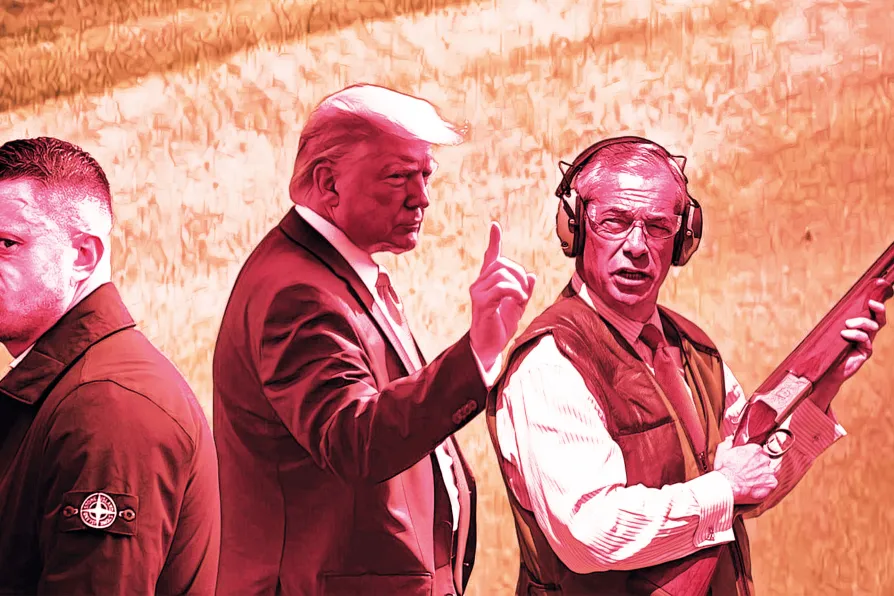The long-term effects of chemical weapons such as Agent Orange mean that the impact of war lasts well beyond a ceasefire
How can we keep up this anti-fascist momentum?
Mass protests may have put fascists on the back foot for now, but Nigel Farage and Reform UK are fanning the flames of a dangerous new racist offensive, warns WEYMAN BENNETT, announcing Stand Up to Racism’s new campaign

 TROUBLE AHEAD: (Left to right) Tommy Robinson, Donald Trump and Nigel Farage present a new, serious challenge from the right
TROUBLE AHEAD: (Left to right) Tommy Robinson, Donald Trump and Nigel Farage present a new, serious challenge from the right
THE last few weeks have changed British politics. We face a new, urgent far-right threat. But we have also seen how anti-racists can turn the tide.
The protests that took place on Wednesday August 7 and Saturday August 10 show what a mass movement against racism looks like.
In response to far-right riots, pogroms against migrants in hotels and attacks on mosques, the anti-racist movement roared back. Because people organised, mobilised and took to the streets we pushed the far right back — and shaped a crucial juncture in British politics.
Similar stories

JULIE SHERRY looks ahead to this weekend’s Stand Up to Racism and trade unions conference that will play a vital part in developing the urgent anti-fascist fightback

Campaigners express concerns about the of safety black and minority ethnic communities in London ahead of far-right march

Donald Trump’s inauguration has emboldened fascists in Britain, warns SABBY DHALU

In fighting against racism and fascism, it helps to clearly make the case that division and hatred emerge from the elites and those who stand to benefit from a fractured working class, argues DANIEL KEBEDE










